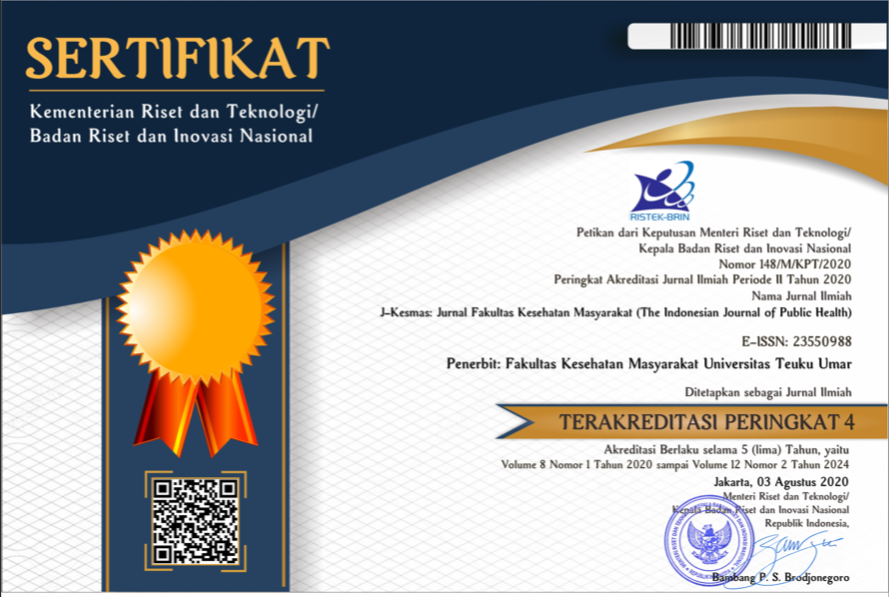Coastal Nutrition Status of the Country Reviewed from Social Culture and Islamic Perspective
Abstract
Keywords
Full Text:
PDFReferences
Bunga Astria Paramashanti. (2019). Gizi Bagi Ibu & Anak. Yogyakarta : Pustaka Baru.
Departemen Agama RI. (2006). Al-Quran dan Terjemahnya. Surabaya : Pustaka Agung Harapan.
Ferriawan, T. (2017). Analisis Gizi Seimbang Pada Masyarakat Pesisir Pantai Selat Madura Desa Kalanganyar Kecamatan Sedati Kabupaten Sidoarjo. Jurnal Tata Boga, 5(3), 28-33.
Gamal K. (2012) Sakit dan Pengobatan Secara Islami. Lihat juga Zaenal Abidin, “Keluarga Sehat dalam Perspektif Islam”, dalam Jurnal Komunika, 6(1), 1-14
Gibson RS. (2005). Principle of Nutritional Assessment. Oxford University Press, USA.
Hardinsyah, H., & Aries, M. (2012). Jenis Pangan Sarapan Dan Perannya Dalam Asupan Gizi Harian Anak Usia 6 -12 Tahun Di Indonesia, Jurnal Gizi dan Pangan, 7(2), 89-96.
HM. Budiyanto. (2014). “Hak-Hak Anak Dalam Perspektif Islam”. Jurnal Studi Gender dan Anak, 1(1), 32-39.
Khomsan, A. (2010). Pangan dan Gizi Untuk Kesehatan. Jakarta : PT. Raja Grafindo Persada.
Kusnadi. (2007). Jaminan Sosial Nelayan. Yogyakarta : LKiS Pelangi Aksara
Mitayani dan Sartika, W. (2010). Buku Saku Ilmu Gizi. Jakarta: Trans Info Media.
Shihab, M. Q. (1996) Wawasan Al-Quran: Tafsir Maudhu’i atas Pelbagai Persoalan Umat. Bandung: Mizan, 37-148.
Notoatmodjo. (2007). Promosi Kesehatan dan Ilmu Perilaku. Jakarta (ID) : Rineka Cipta.
Perdana, F., & Hardinsyah. (2013). Analisis Jenis, Jumlah dan Mutu Gizi Konsumsi Sarapan Anak Indonesia. Jurnal gizi dan Pangan, 8(1), 39-46.
Trisia. (2010). Kontribusi Sosial Budaya Penyebab Malnutrisi Pada Balita Di Keluarga Nelayan Skripsi. Jurusan Sosiologi. Fakultas Ilmu sosial dan Perilaku. Universitas Lampung.
Ningsih, Y.A., Suyanto, & Restuastuti, T. (2016). Gambaran status Gizi pada Siswa Sekolah Dasar Kecamatan Rangsang Kabupaten Kepulauan Meranti. JOM FK, 3(2), 1-12.
DOI: https://doi.org/10.35308/j-kesmas.v7i2.1732
Refbacks
- There are currently no refbacks.
Managed by Fakultas Kesehatan Masyarakat
Published by Universitas Teuku Umar
Website: http://jurnal.utu.ac.id/jkesmas
Email: jkemas@utu.ac.id 
This work is licensed under a Creative Commons Attribution-ShareAlike 4.0 International License.







.jpg)


